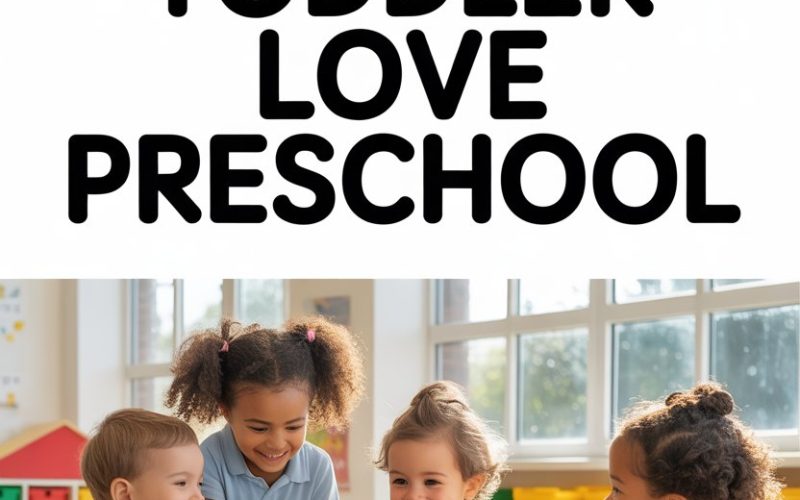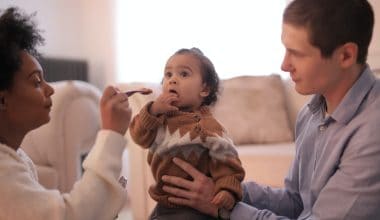The word “preschool” can conjure up both hope and horror in a parent’s heart.
Hope that your small hurricane might finally learn to sit still, horror at the idea of a full-on meltdown at drop-off that leaves you both tear-streaked and clutching a limp soft toy.
If you’ve got visions of little feet running gleefully toward the classroom instead of clinging koala-like to your leg, you’re in the right place.
Let’s roll up our sleeves and give your little one every chance to adore their preschool days—without anyone (including you) losing their marbles.
Why Preschool Can Feel Scary for Little Ones
For children under five, big changes are often greeted with suspicion. Here’s a place with new adults, unfamiliar toys, funny smells, and (gasp) the expectation that you share the good glue sticks.
Toss in the fact that parents are nowhere to be seen for a few hours, and it’s no wonder some toddlers view preschool as a suspicious enterprise.
But loving preschool isn’t some mysterious talent some kids have and others don’t. It’s a feeling that can be built, brick by brick.
Prepare for a few wobbly mornings—then get ready to see your little one start to shine.
Gearing Up: The Power of Preparation
Picture this: you wake up one morning, someone hands you a uniform, shoves you into a strange building, and promises to pick you up “later.”
That’s what preschool can feel like for a toddler if the transition’s too abrupt.
Instead, start talking about preschool as casually as you’d mention dinner.
Use the teacher’s name, chat about the cool things little ones do there (painting, singing, snack time—emphasise the snacks), and stroll past the school when you can, waving at the playground.
Some parents swear by reading picture books starring cheerful preschoolers. The more familiar it seems, the less intimidating it becomes.
A quick word to the wise: toddlers are world-class mind readers. If you’re anxious, they’ll sense it. Even if you’re quaking at the school gates, keep your tone upbeat.
Fake it ‘til you make it, as the saying goes.
The Art of the Goodbye
Hands up if you’ve ever tried to sneak out while your child was distracted. It’s tempting, but about as successful as hiding veggies in pasta—sometimes it works, but the fallout isn’t worth it.
Experts agree that a predictable, loving goodbye routine helps children feel secure. Keep it short and sweet. No drawn-out Oscar-worthy farewells, no ninja-style disappearing acts.
A hug, a kiss, a cheerful “See you after playtime!” and then a confident exit. Teachers have seen it all, and they’re primed to scoop up any teary little ones the second you’re out of sight.
If your child is struggling, consider a special goodbye ritual: a secret handshake, a heart drawn on their palm, or a “magic” kiss tucked in their pocket.
These tiny touches offer reassurance long after you’ve left the car park.
Relationships Matter: Building Bonds With Teachers
Children love preschool when they feel connected—not just to the activities, but to the adults in charge. Get to know your child’s teachers.
Use their names at home, chat with them during pick-up about the day’s highlights, or mention something fun they organised (“Miss Robyn set up a dinosaur dig today!”).
A sense of partnership between you and the teachers helps your child trust that this is a safe space. If your little one knows that you and the teacher are on the same team, they’re more likely to relax and explore.
Talk About Preschool, But Don’t Overdo It
While enthusiasm is lovely, an endless stream of “Aren’t you excited for preschool?” can have the opposite effect. Toddlers are notorious for digging in their heels if they spot an agenda.
Instead, weave preschool into normal conversation. Mention a new friend they made, a painting they brought home, or the way the sandpit now contains approximately one metric tonne of glitter.
Keep it light and let them lead the way when talking about their day—sometimes you’ll get a detailed play-by-play, other times just the colour of someone’s socks. Both are victories.
Routine Is Your Best Friend
Children thrive on routine, even if parents occasionally fantasise about running away to a tropical island. A predictable schedule (wake up, get dressed, breakfast, off to preschool) helps little ones feel secure.
Consistent drop-off and pick-up times are key.
Arriving late or leaving early can create confusion: “Will Mum be here after snack, or after painting, or after I’ve completely unravelled every roll of toilet paper in the bathroom?”
The more predictable things feel, the safer your child will feel to enjoy themselves.
Big Feelings Are Normal—Name Them
Preschool can trigger a rollercoaster of emotions. Excitement, nerves, pride, jealousy, even nostalgia for the halcyon days of last week’s playgroup.
When those feelings bubble up, naming them is powerful. Say things like, “It’s okay to feel a bit nervous about trying something new,” or, “Missing Mummy is normal, but I’ll always come back.”
Research keeps telling us that validating feelings helps children manage them better. Sometimes just hearing “I see you’re a bit worried about preschool” is enough to calm the waters.
Transitional Objects: Not Just for Bedtime
No law says a child’s beloved bunny or superhero cape can’t come to preschool (within reason—leave the singing Christmas tie at home, unless you want the teachers to stage a mutiny).
Transitional objects offer comfort and act as a bridge between home and school.
Some schools have policies around what can be brought in, so check with the staff. Even a family photo tucked in a pocket can work wonders.
Feeling that bit of home in the classroom can mean the difference between a brave goodbye and a morning spent plotting escape routes.
Slow and Steady Wins the Race
The phrase “gentle start” wasn’t invented by accident. Some children need time to warm up. If your preschool allows, arrange for a settling-in period.
This could mean shorter or fewer days at first, or even staying for a bit on the sidelines while your child explores.
No shame in a gradual approach. Rome wasn’t built in a day, and neither are confident preschoolers.
Don’t Underestimate the Power of Snack Time
In toddler circles, snack time is practically a religion. Talk up the snacks, pack a favourite treat, and make sure your child knows what’s coming.
Offering a sense of familiarity at snack time—be it their favourite banana bread or a lunchbox sticker—can be a secret weapon.
Should snack-related diplomacy fail, never underestimate the ability of a fruit roll-up to heal almost any wound to the soul.
Friendships Need a Nudge
Making friends doesn’t come naturally to everyone (don’t we know it). Arrange playdates with classmates if possible. Even a short park visit with a familiar preschool face can help your child feel like they’ve got an ally.
Some children are social butterflies, others prefer parallel play. Both are perfectly normal.
Encourage your child to wave hello, share a toy, or chat about dinosaurs, and trust that real friendships will blossom—usually right after you stop worrying about it.
Celebrate Wins—Big and Small
Did your child walk in without tears? High five. Share a toy without a fight? Break out the celebratory biscuits.
Celebrating these milestones builds confidence and reinforces the idea that preschool is a place where good things happen.
Remember, what’s minor to you can feel monumental to your child. Sometimes just making it through the door is worth a parade (or at least a dance in the kitchen).
Keep Lines of Communication Open
Stay in touch with teachers, and chat about any wobbles or worries your child might have.
If you notice a pattern—say, your little one always gets teary on Mondays—talk about it with the staff. There could be a simple explanation, like a noisy assembly or a new substitute.
Don’t hesitate to ask for advice. Teachers are seasoned pros, and chances are, they’ve helped dozens of little ones through similar challenges.
The Home-Preschool Connection
Bringing a bit of preschool home can help bridge any gaps. Ask about the day, look at their drawings, or sing the songs they learned (even if you still wake up in a cold sweat from the Baby Shark era).
Showing genuine interest signals that preschool is part of your child’s world—and yours.
Sticky fingers and glitter trails on the kitchen table? That’s the sign of a preschooler who’s starting to feel right at home.
When to Seek Extra Help
If your child is consistently unhappy after several weeks, it may be time to check in with their teacher or a child psychologist. Separation anxiety, sensory challenges, or even a mismatch with the school environment can make things tough.
The American Academy of Pediatrics has a helpful guide for deciding when to seek additional support.
Don’t worry—needing extra help is never a reflection on you or your child. Sometimes a tweak in approach is all it takes for things to click.
What If You’re the One Struggling?
A not-so-secret truth: separation can be harder for parents than for children. If you’re hanging around the car park with sunglasses on, pretending your “allergies” are flaring up, you’re in good company.
Give yourself grace. Find a ritual that soothes you too, whether it’s a cuppa with a friend, a brisk walk, or—dare I suggest—a few minutes reading something that doesn’t rhyme.
Remember, your child is learning independence, and you’re gaining a little breathing space. Everyone wins, eventually.
Preschool: The Start of Something Good
No one said raising a confident preschooler was easy, but it’s one of those challenges that pays off in giggles, paint-splattered masterpieces, and the joyful retelling of snack-time drama.
With a mix of preparation, empathy, and a healthy reverence for snack time, your toddler can come to love preschool—and you might just find yourself loving it too.
Now, who’s ready for pick-up? (Just don’t be late. The glitter situation escalates quickly.)





